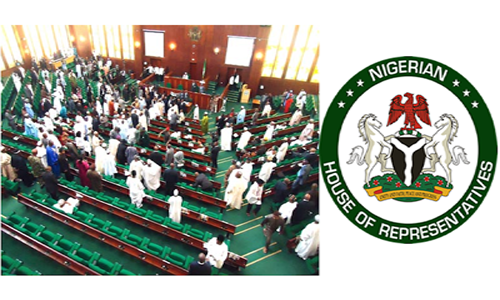- The issue is not in the argument but why should huge recoveries be made?
The ongoing controversy between the House of Representatives and the Independent Corrupt Practices and Other Related Offences Commission (ICPC) as regards the amount of funds released so far for the purported execution of constituency projects, as well as how much has been recovered in cash and assets from those who allegedly failed to carry out the purpose for which the funds were released appears to sidetrack the most critical and fundamental issue.
Enraged legislators accuse the ICPC of misleading and inciting the public against the legislature by reportedly claiming that N1 trillion has been made available for the projects, with no commensurate value added to the various constituencies, and that about N100 billion has been recovered in cash and assets by the commission in the course of probing the degree of execution of the projects.
The House of Representatives contends that even if about N1 trillion was approved as budgetary allocation for constituency projects, the actual cash releases over time fell far short of that amount, and that the ICPC has a responsibility to make the correct information of such actual cash releases available to the public.
Furthermore, the legislators state that the amount recovered by the commission as declared in its own report is N660m in cash and property and not N100 billion.
In our view, this disagreement is entirely beside the point. The critical issue is that there has been gross abuse of process and outright fraud in the execution of the constituency projects, which is why substantial amounts of public funds have been recovered from defaulting contractors by the ICPC.
Even if the amount recovered is N660 million as claimed by the lower arm of the legislature, such a level of waste and misuse of resources is unwarranted and indefensible.
The implication is that if the ICPC had not undertaken this probe, this huge amount would most likely have been lost and the projects they were meant for not executed.
What comes to the fore again is the need to urgently review the concept of constituency projects with a view to either scrapping it entirely or at least drastically modifying the mode of its implementation.
Legislators are elected primarily to make laws and perform oversight responsibilities over the executive in the latter’s performance of its functions.
As it is, the large sums now allocated for constituency projects have become a ploy for unscrupulous legislators in collaboration with unpatriotic bureaucrats to fleece the public treasury through the award of frivolous contracts.
True, not all legislators are engaged in the dishonest exploitation of constituency projects for criminal diversion of public funds to the detriment of their constituencies and the country as a whole.
The spokesman of the House of Representatives, Benjamin Kalu, for instance, claims that of the 373 projects visited by the ICPC, 255 were healthy and 108 were ongoing.
He stressed further that only five projects were abandoned and three not started at all. If this were so, how come that as much as N660m in cash and property has been recovered from defaulting contractors by the ICPC?
There is no point pretending that there is not something fundamentally wrong with the current mechanism of implementing constituency projects.
Rather than creating separate budget heads for constituency projects that are nebulous and vulnerable to abuse, all projects across the country ought to be captured within the budgetary plans of the various ministries, departments and agencies (MDAs), and executed in accordance with stipulated processes that guarantee transparency, efficiency and accountability.
The current system is open to abuse as is so obvious and such avenue for avoidable leakages must be eliminated in the interest of accelerated economic recovery and development.
However, it is not enough to recover cash and assets from errant contractors; they must be made to face the law along with colluding legislators and bureaucrats.
















































